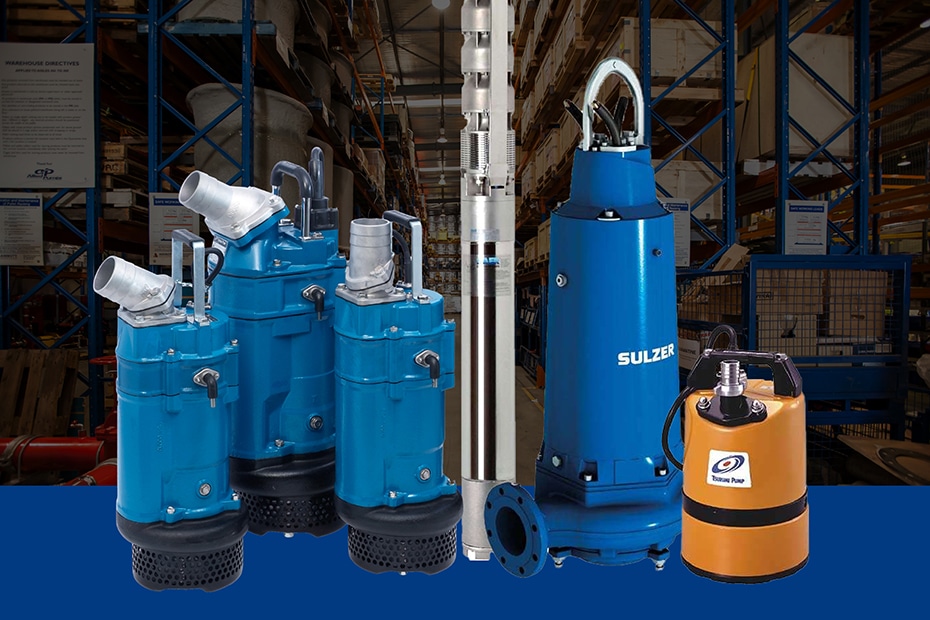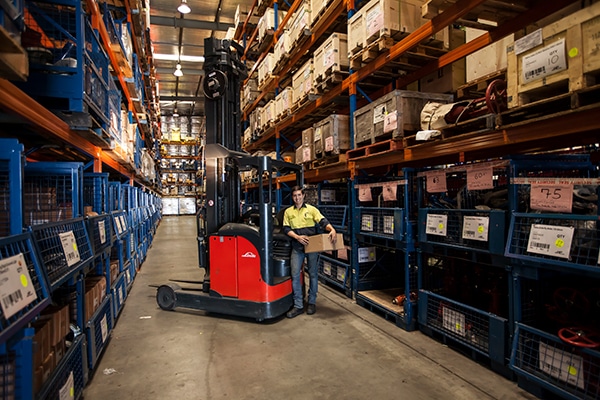
Submersible pumps are essential in providing efficient fluid management solutions for mining, construction, wastewater treatment, and more. Designed to operate while fully submerged, these pumps offer enhanced efficiency and durability. Below, we explore five types of submersible pumps, how they work, and our recommended brands for each kind.
Dewatering pumps are used to remove excess water from mines, construction sites, and flooded areas. These pumps prevent water accumulation, ensuring safe and efficient operations in environments prone to water intrusion.
How They Work: Dewatering pumps use a centrifugal mechanism to draw water in and expel it through a discharge pipe. They often feature automatic float switches to start and stop operation based on water levels.
Recommended Brand: Sulzer and Tsurumi
Sewage and wastewater pumps are designed to handle solids and liquids in municipal and industrial waste systems. These pumps are crucial for moving wastewater efficiently and preventing blockages.
How They Work: These pumps use a vortex or grinder mechanism to break down solid waste before transporting it through sewage systems. Some models have built-in macerators to handle tough debris.
Recommended Brand: Sulzer
Borehole pumps are submersible pumps used for deep well applications, such as groundwater extraction. They provide reliable water supply solutions for industrial operations and are used for managed aquifer recharge in the mining industry.
How They Work: Borehole pumps operate using a multi-stage centrifugal design, creating high pressure to push water up from deep underground sources.
Recommended Brand: Grundfos, SAER, and Corde
Slurry pumps are built to handle abrasive and high-viscosity fluids, making them ideal for challenging environments. Their robust construction ensures longevity and efficiency in demanding applications like mining and construction.
How They Work: Slurry pumps use heavy-duty impellers and reinforced casings to transport thick, abrasive slurries. They often incorporate agitators to keep solids suspended.
Recommended Brand: Tsurumi and Flowserve
Stormwater and drainage pumps help manage runoff and prevent flooding in commercial and industrial settings. These pumps play a critical role in water control and infrastructure resilience.
How They Work: These pumps rely on centrifugal force to move large volumes of water quickly, often featuring automatic sensors to activate during heavy rainfall.
Recommended Brand: Tsurumi
Selecting the appropriate submersible pump depends on several factors, including:

Allied Pumps offers expert guidance and customized solutions to meet the demands of each industry. Our team can help you select the right submersible pump for your specific needs form our range of trusted brands mentioned in this article.
For more information on selecting the right submersible pump for your needs, contact us today.

Contact us to learn about how we can help you with your pump needs.
CALL US NOW EMAIL US